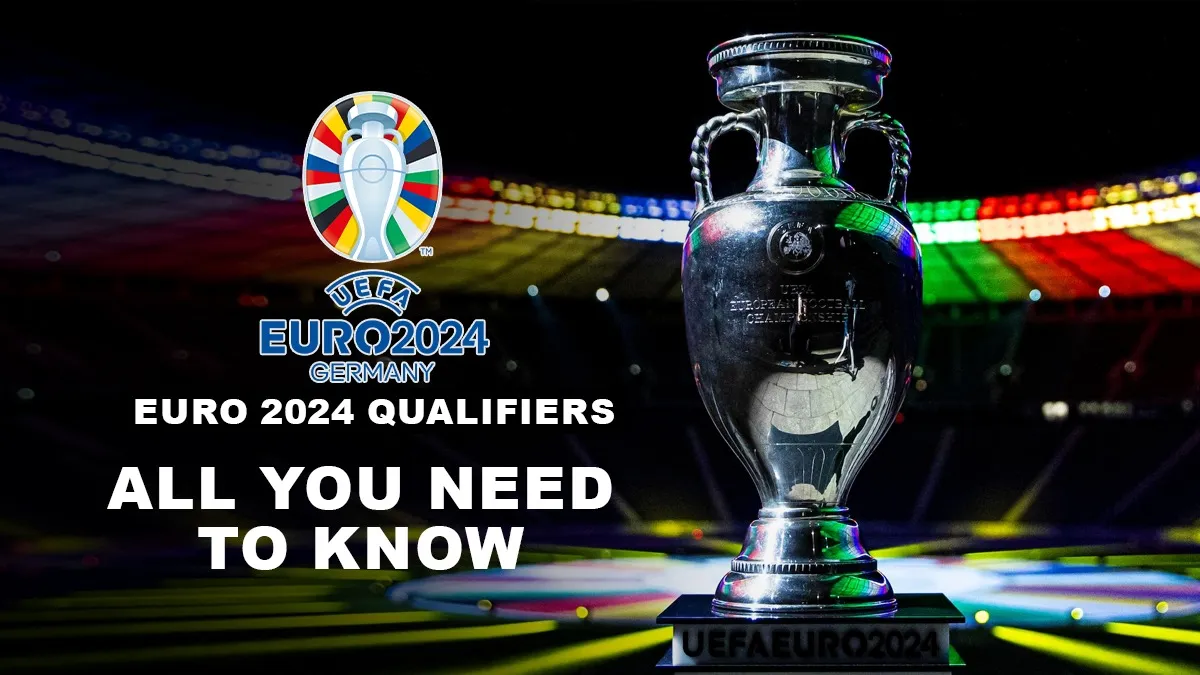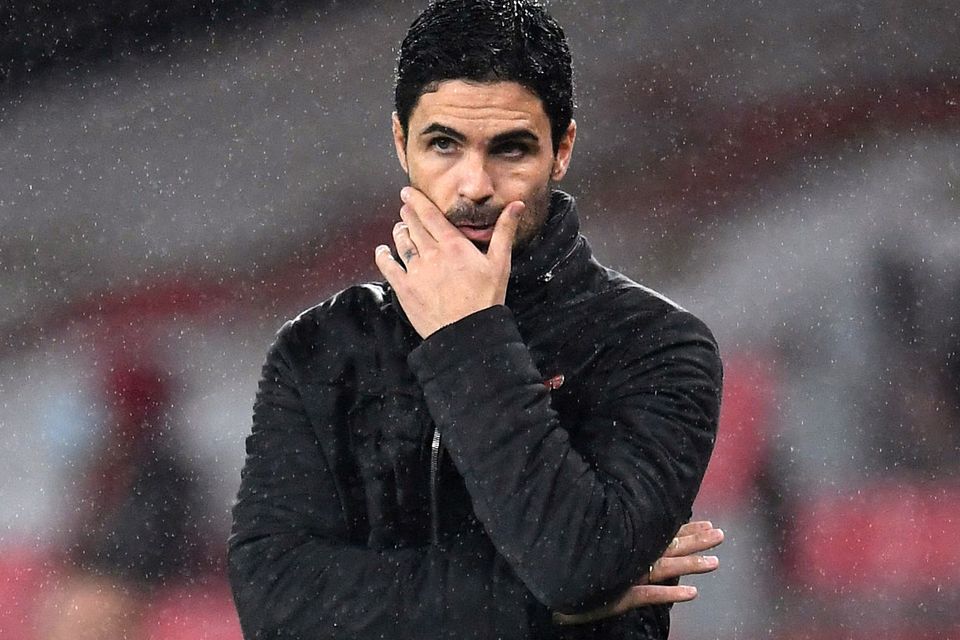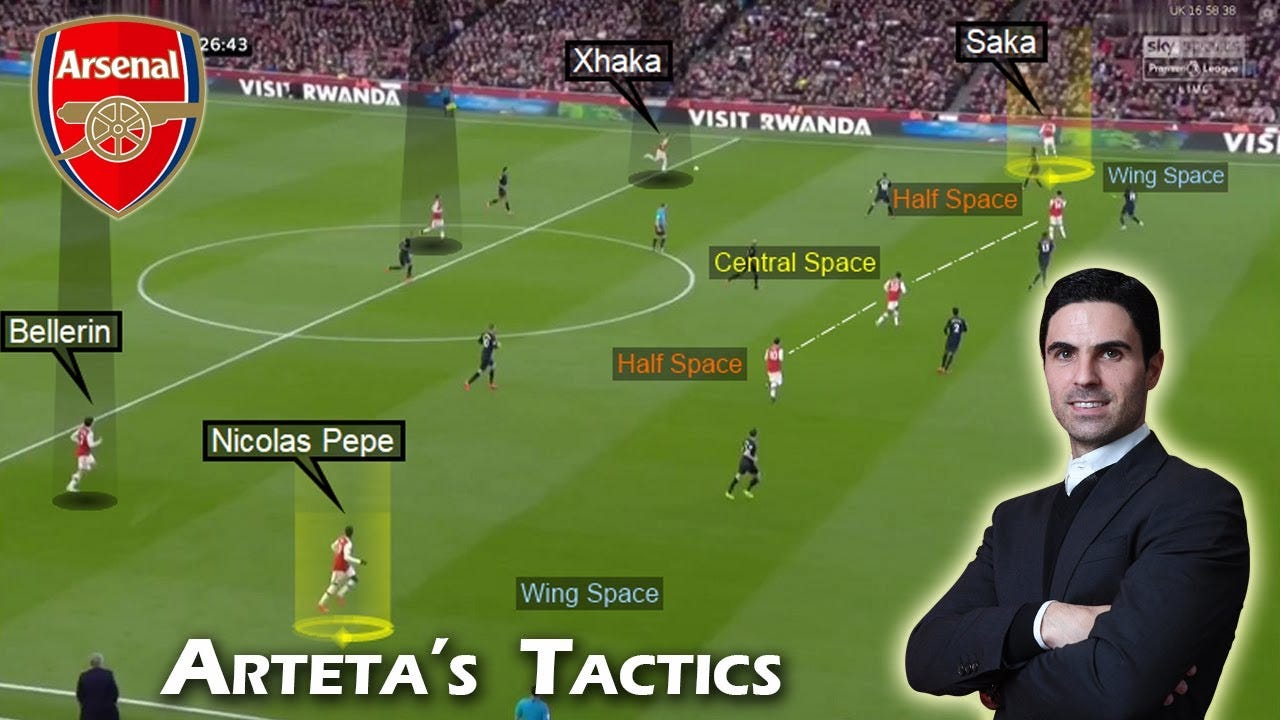Club football is back this weekend after another week-long international break and I’m sure most of you are as excited as I am. I don’t know what it is about the international break but it just doesn’t seem to give me the same satisfaction as when I watch my favourite club playing week in, week out. Nonetheless, there were some feisty clashes, late drama and new records set during this eventful Euro 2024 qualifiers round.
The UEFA Euro 2024 will be hosted by Germany and at this time there are still a couple of games to be played to determine the final 3 countries that will make the trip next year. As it stands, along with hosts Germany there are 20 other teams which have already qualified to play in Europe’s biggest international football tournament.
UEFA have implemented a ‘playoffs’ system which will be used to determine the final 3 teams to participate in the tournament. It is a needlessly complicated structure that involves twelve teams battling it out in March 2024 to claim the final 3 spots. I will attempt to simplify the process of the playoffs at the end of the article…so for now let’s not get bogged down in the details!

Group A was expectedly led by football giants Spain with Scotland finishing in second place behind them. At first glance, group A might have seemed like an easy group for Spain, however within the group was also Norway, Georgia and Cyprus. It is unfortunate for English Premier League stars Erling Haaland and Martin Ødegaard as once again Norway finished the group in third, failing to qualify for a successive international tournament. Scotland continues their unexpected rise since qualifying for the UEFA Euro 2020 tournament by repeating the same feat again for the upcoming Euro.
Group B was led by France and tailed by the Netherlands in second place. The group was a relatively straightforward one on paper, the remaining 3 teams being Greece, Ireland and Gibraltar. Unfortunately for Gibraltar, they suffered a 14-0 loss to France earlier this week setting a new record win for the French team in qualifying rounds since 1995.
Group C saw the pervious Euro 2020 finalists qualify, this time in reverse order. Similar to France in group B, England finished the group in 1st place without any losses. Runners-up Italy had a surprisingly difficult time, winning just 4 out of 8 games played, drawing 2 and losing the other 2. Their final draw came this week against Ukraine and there was late drama involving a potential penalty for Ukraine but thanks to good fortune – in other words VAR, the Italians managed to escape with a precious point. Italy finished the group on equal points (14) with third place Ukraine and successfully qualified via a higher goal difference.
Group D’s top spot was up for grabs as the competition was fierce between recently renowned Croatia and teams like Türkiye and Wales. Amongst them were also the less recognised Armenia and Latvia. Türkiye topped the group 1 point ahead of Croatia with Wales finishing in 3rd place. A
Group E consisted of Poland, Moldova, Faroe Islands, Czechia and Albania. On paper, I would have assumed Poland, led by captain Robert Lewandowski would top the group but instead Albania claimed the top spot followed by Czechia and were only separated by goal difference as both teams had 15 points and an identical record of 4 wins, 3 draws and 1 loss. Poland surprisingly struggled to obtain any consistency, dropping points to Albania, Czechia and even Moldova thereby finishing in 3rd place with just 11 points.
Group F was topped by Belgium, winning 6, drawing 2 and losing none. Austria trailed Belgium in second place, boasting an impressive run winning 6, drawing 1 and losing only once against Belgium. Sweden finished in 3rd place, followed by Azerbaijan and Estonia.
Group G’s top spot was claimed by Hungary who were strong defensively and managed to emerge from the group without losing a single game, winning 5 and drawing 3 while conceding just 7 goals in total. Dominik Szoboszlai provided a stellar performance this week scoring 2 goals in a 3-1 win against Montenegro. Serbia were runners up followed by Montenegro, Lithuania and Bulgaria.
Group H consisted of 6 teams instead of the usual 5. Denmark topped the group ahead of Slovenia on goal difference. Both teams had 7 wins, 1 draw and 1 loss with an equal 22 points each. Finland finished in 3rd followed by Kazakhstan, Northern Ireland and San Marino.
Group I also contained 6 teams – Switzerland, Romania, Israel, Belarus, Kosovo and Andorra. Again unexpectedly, it wasn’t the Swiss who finished in 1st place, rather it was Romania with 6 wins, 4 draws and 0 losses followed by Switzerland in 2nd place. Israel finished 3rd followed by Belarus, Kosovo and Andorra.
Similarly, group J also contained 6 teams. Group J saw Portugal qualifying in emphatic fashion with a perfect record of 10 wins out of 10 games played, scoring a total of 34 goals and conceding just 2. You can see why all eyes are on the Portuguese going into the Euro. Second place was Slovakia who finished 8 points behind the group leaders followed by Luxembourg, Iceland, Bosnia and Herzegovina and Liechtenstein.
UEFA EURO 2024 Playoffs
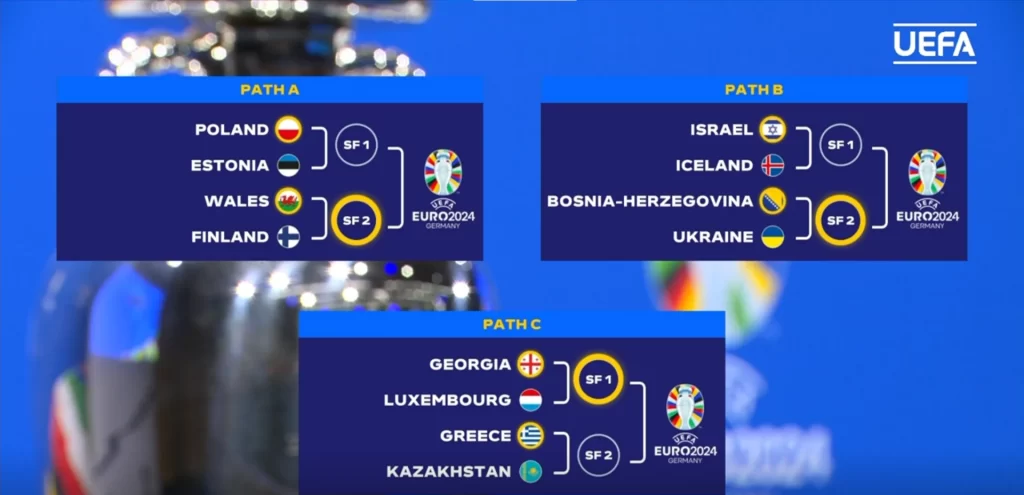
As you can see, 12 teams will be participating in the playoffs. The teams are divided into three paths and each path will have 2 single-leg semi-finals and the winners of those semi-finals will naturally play against each other in a single-leg final. Each path will have one winner emerging from each of the finals and those three teams will be joining the other 21 teams who have already qualified at next year’s Euro. How exactly were the 12 teams decided? this is where it gets complicated and the best way I can explain it is through this table. Basically teams were selected based on their rankings in the 2022-2023 UEFA Nations League Rankings.
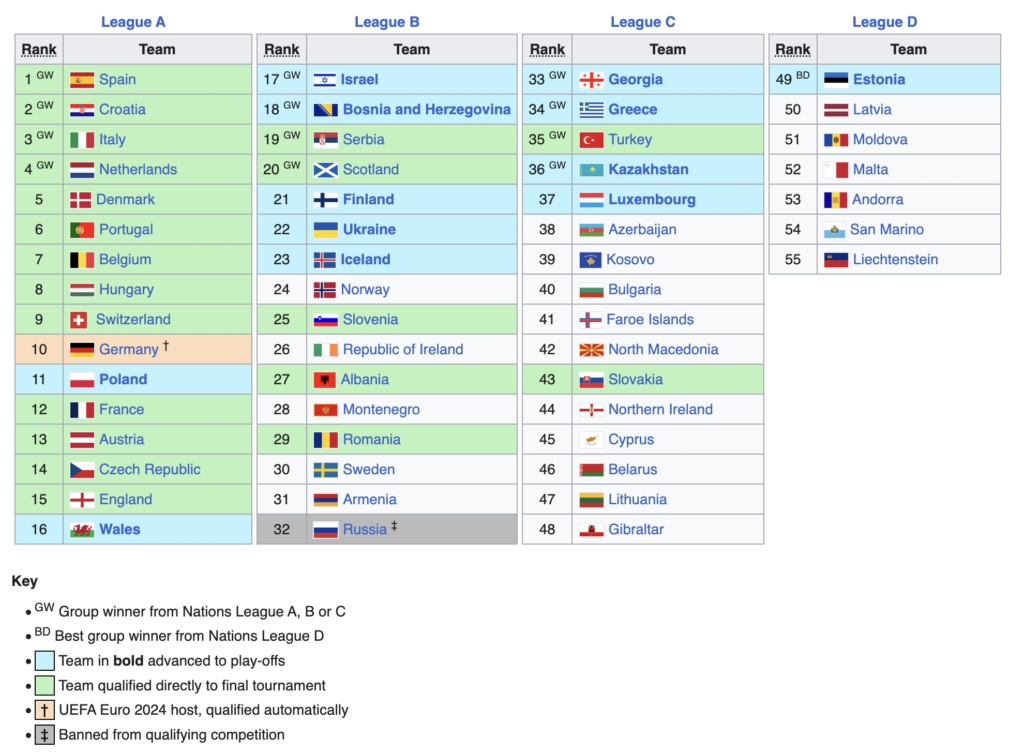
The criteria used were:
All available group winners were selected.
If a group winner had directly qualified through the UEFA Euro 2024 qualifying group stage, then they were replaced by the next best-ranked team from the same league that had not also directly qualified.
If fewer than four teams from a given league had failed to qualify, then the remaining slots for that league were allocated as follows:
The better-ranked League D group winner would be selected unless this team had directly qualified.
Remaining slots would be allocated based on the Nations League overall ranking:
If the league had a group winner selected for the play-offs, then the next-best team in the overall ranking from a lower league was selected.
If the league had no group winner available, then the best team in the overall ranking was selected.
Therefore some of the teams who finished 3rd place in this year’s Euro qualifiers were not eligible to participate in the playoffs whilst others were eligible due to the previous Nations League rankings, which to me does not seem fair. For example, Norway finished 3rd place in group A with 11 points (3 wins, 2 Draws and 1 loss).
While Iceland finished 4th place in group J with 10 points (3 wins, 1 Draw and 6 losses) and yet via a hand-draw and rankings from a previous tournament, they are participating in the playoffs ahead of Norway and still have a chance to qualify for the tournament. In my opinion, the inclusion of this new playoff system just complicates selection processes needlessly and negates the effort teams have put into the qualifying rounds.
